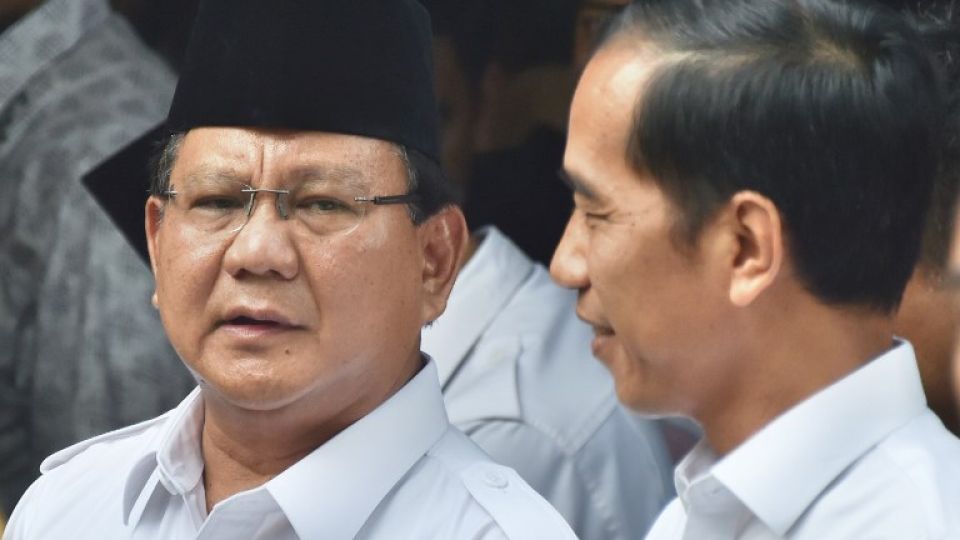April 18, 2019
Change no longer the rallying cry in Indonesia.
When Joko Widodo first ran for president in 2014, Indonesia was in the mood for change.
Everything about Mr Joko then was about hope and change: his path to power, his man-of-the-people image, his focus on services.
A businessman selling furniture in Solo, he was not part of the Jakarta political elite and triumphed at the polls as an outsider candidate.
That’s unusual when one considers all the water under the bridge since Mr Joko took his oath of office in October 2014.
Billions have been spent on infrastructure. The country has shifted to the right after the blasphemy trial of former Jakarta governor Basuki Tjahaja Purnama – Mr Joko’s one-time ally and deputy. Economic growth has been underwhelming but Mr Joko has run a mostly scandal-free government.
Take for example Firdaus Amien, 39 in Asem Baris in South Jakarta. Mr Firdaus’s grandfather started the Attahiriah Pesantren – a religious school for girls.
Most people here are dyed- in-the wool supporters of Nahdlatul Ulama, the world’s biggest Islamic organisation. The district went for Mr Prabowo last time. That Mr Joko chose a former head of the organisation, Ma’ruf Amin, as his running mate has cut no ice with them.
“This is a Prabowo neighbourhood,” said Mr Firdaus, a former reporter. He voted for Mr Joko this time and in 2014. The rest of his family opted for his opponent – again.
“They think Jokowi is using Ma’ruf to get Muslim support,” said Mr Firdaus, using the popular moniker for Mr Joko.
Then there’s Muhammed Thohir, 79, who lives a stone’s throw away from the Jakarta home of Habib Rizieq, the head of the hardline group the Islamic Defenders Front, who is currently in exile in Saudi Arabia.
The area went for Mr Joko in 2014. It picked Anies Baswedan over Mr Basuki for Jakarta governor in 2017, and opted for Mr Joko again on Wednesday.
All this despite a surge in religious sentiment sparked by Mr Basuki’s blasphemy trial. In the end voters here were unfazed with Mr Joko’s close association with Mr Basuki and stuck with him.
Mr Muhammed, who voted for Mr Prabowo last time, rued the lost opportunity to oust Mr Joko.
“I was hoping we would change the president,” Mr Muhammed said.
“There’s a Christian school and there’s many (ethnic) Chinese here,” Mr Muhammed said by way of explanation of Mr Joko’s victory in the neighbourhood.”
But in Tanjung Duren, to the west of the city, toward the airport, ethnic Chinese were steadfast behind Mr Joko, even after he withdrew support for Mr Basuki, a Christian of Chinese descent. Mr Basuki was released from jail in January after serving most his two year sentence for insulting the Koran.
That Mr Ma’ruf testified against Mr Basuki at the blasphemy trial hasn’t sullied Mr Joko’s standing among voters here.
“We hope that Ma’ruf will help calm the more extreme Muslims so that Jokowi can work on infrastructure,” said Pauline Liongosari, a brand manager at a big consumer products conglomerate, who is ethnic Chinese.
Ms Pauline’s husband, Kris Antoni, a 33-year-old games software developer is hoping that the next five years will bring more of the same.
His industry has thrived under Mr Joko, who lifted investor caps on the entertainment industry. It’s a far cry from how things were a decade ago when government officials harassed him and other ethnic Chinese for bribes to process applications for identification documents.
“There’s less corruption,” Mr Kris said.
“Of course I want Jokowi to win. We’ve already seen an improvement.”


